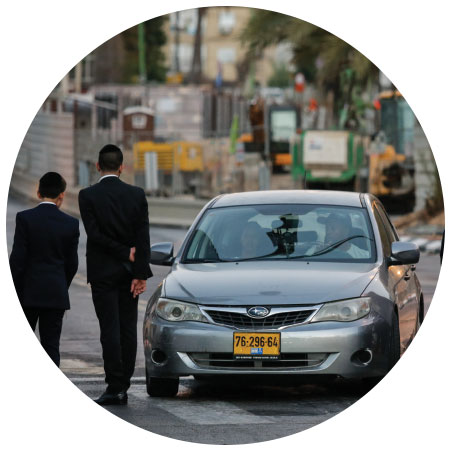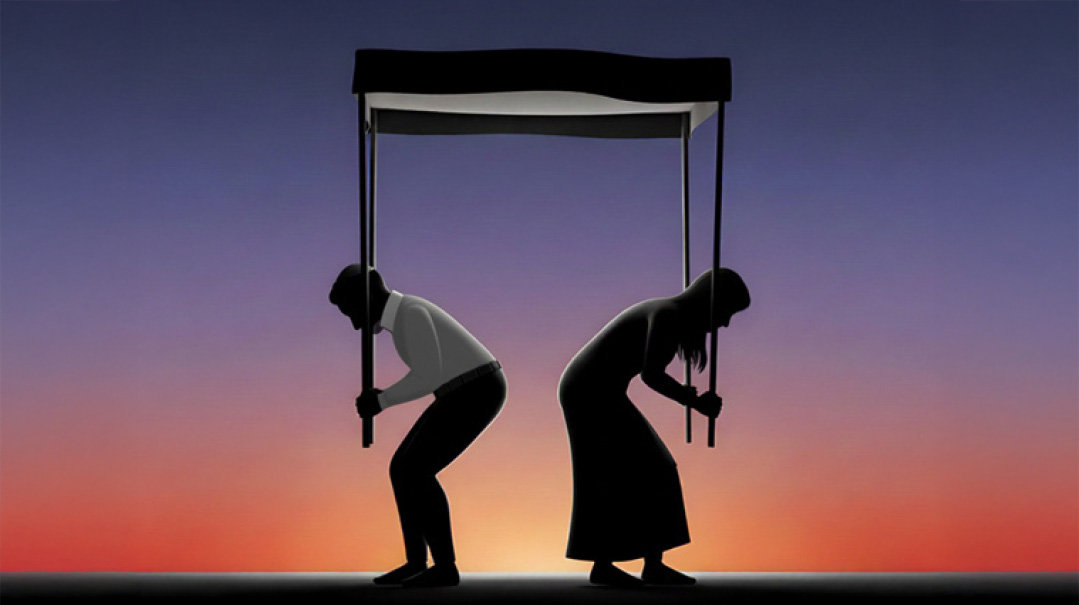Screaming Shabbos

Is tolerance a uniquely American concept, a value that just couldn’t survive the heat on its ill-fated journey to the Mideast?
I

As this very fractured country devolves into yet another round of conflict and buses defiantly plow through its holiest day, we all wonder how to respond. One thing grows clearer by the minute: The concept of a country that is at once both a Jewish State and a Western democracy is hopelessly flawed. Democracies are of, by, and for the people. A Jewish State must bow to the will of its Creator. When “the people” can’t ride public transportation to the movie theater on Shabbos, where is their democracy? And when Shabbos is trampled by weekend revelers who delight in throwing off the shackles of tradition, then what makes their state Jewish?
Beyond those big philosophical questions best left to the scholars and pundits, there are questions for us regular people. How do we react to news of yet another Shabbos bus route — do we scream, do we cry, do we berate the transgressors and deride the politicians who represent them? Do we focus on our own side of the equation and try to make our Shabbos bigger and brighter?
For us Anglos watching this country spasm with passion, there’s another set of questions. I’m not a screamer. Do I lack the screamers’ fire and fervor because that American religion of tolerance above all is a deadening influence? Or maybe it’s because it seems counterintuitive to yell at people driving into the distance when inside you’re praying for them to one day draw closer.
Is tolerance a uniquely American concept, a value that just couldn’t survive the heat on its ill-fated journey to the Mideast? I wonder about this as I push my stroller along. I’m a third-generation American on my father’s side. Both sets of my maternal great-grandparents imported chassidish shtibels from Europe to New York before World War II. Many of their mispallelim snatched a hurried Shabbos davening before running out to work, and the legend is that my great-grandmother fed them before they left, entreating them “this should be the last time you do this.” I can’t fathom having to make the choice between keeping Shabbos or watching my family go hungry. I explain this to my children. And I don’t know any motorist, ever, who was inspired to keep Shabbos after someone yelled SHABBIIIIIS at him.
But I tell them, too, that a Jew who lives with a constant awareness of Hashem can’t just watch his brother drive by on this holiest of days and dismiss it as “different strokes for different folks.” Chances are these young men in their stylish jackets and shiny cars aren’t driving to work so they can pinch together a few shekels to buy some pita for their kids. The people screaming “Shabbos” are shouting because it hurts them to see this precious day desecrated. And it hurts them to watch a Jew trample his heritage, slash his own soul.
I think most of us recognize that even if screaming is not our way, the practice stems from an idealism and emotional sensitivity that should belong to us all. In this land that literally trembles when we transgress His laws, every violation endangers us. We know on some level that we should be quaking.
Measured people that we are, we don’t scream because we see too many downsides to shouting and yelling and deepening the gap. But deep inside our hearts, do we have any screams to silence? I wonder and I watch as the car, and the screams, fade into the distance and the setting sun fills the Jerusalem sky with a weak pink glow.
(Originally featured in Mishpacha, Issue 789)
Oops! We could not locate your form.







